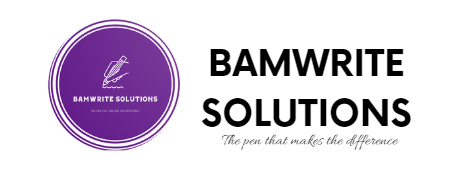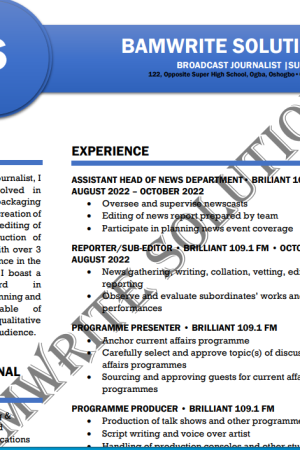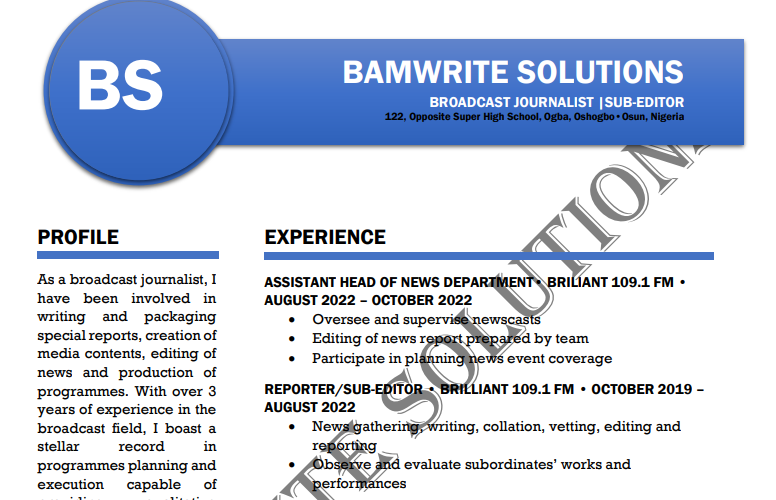
The Genuine Student (GS) Requirement Statement is a crucial component for students applying to study in Australia. Until recently, this document was known as the Genuine Temporary Entrant (GTE) statement. However, with evolving immigration policies and the need for a more student-focused approach, the GTE has been rebranded as the GS Requirement Statement. This document plays a key role in assessing whether a student is genuinely seeking education in Australia for academic reasons rather than immigration purposes. It is vital that applicants craft a well-structured, authentic statement that highlights their intent, qualifications, and personal circumstances.
Essence of the Genuine Student (GS) Requirement Statement
The GS Requirement Statement allows applicants to explain their motivations for studying in Australia, their long-term career goals, and how the education they seek aligns with those goals. It also provides insights into the applicant’s background, helping immigration officers assess whether they meet the requirements for a student visa. In writing the Genuine Student (GS) Requirement Statement, your letter must contain the following:
Personal and Family Background
A strong GS Requirement Statement often begins with a brief introduction to the applicant’s personal and family background. This section should offer a snapshot of where you come from, your family structure, and how your upbringing has shaped your aspirations for higher education. Applicants are encouraged to provide relevant details about their family’s financial stability and support, as this helps demonstrate the capability to fund studies in Australia without needing external assistance.
Discussing your family background also helps immigration officers understand any family ties you may have, either in your home country or in Australia. For example, you can mention if you have any relatives who have studied or are currently living in Australia, which may positively influence your ability to settle into the country’s educational system. However, it’s important to avoid the perception that you may intend to permanently migrate due to family connections.
Educational Background
Your educational background should be presented as a clear and logical progression that aligns with your intended course of study in Australia. Start by outlining your previous academic achievements, including the schools you attended, the degrees or certificates obtained, and any relevant academic honors or distinctions. Highlight subjects you excelled in that are closely related to the course you wish to study in Australia.
It’s essential to link your previous education to your future plans. For instance, if you completed a bachelor’s degree in business administration and are now applying for a master’s in international business, emphasize how your undergraduate education has equipped you with the foundational knowledge and skills needed for advanced study. Additionally, mention any internships, work experience, or extracurricular activities that have further developed your academic and professional interests.
A well-structured educational background helps demonstrate that your pursuit of studies in Australia is a natural progression rather than an abrupt decision. It also helps in convincing immigration officers of your preparedness for the challenges of studying abroad.
Career Background
Your career background is an important aspect of the GS Requirement Statement, particularly for applicants with professional experience. This section should focus on your career trajectory, any job roles you’ve held, and how these roles relate to your intended course of study in Australia. Highlight key responsibilities in your past positions, showcasing skills and knowledge you’ve gained that will be beneficial for your academic and career aspirations.
For instance, if you have experience working in a managerial capacity in a corporate environment and are now seeking an MBA, you should explain how your hands-on experience has shaped your understanding of the business world. Discuss how further education will help you acquire advanced knowledge or leadership skills that can elevate your career to new heights. The goal is to demonstrate that your career background is closely aligned with your decision to pursue higher education and that this education will enhance your professional competencies.
Applicants without extensive career experience can focus on internships, part-time jobs, volunteer work, or any other relevant experiences that contribute to their academic and professional development.
Motivation for Pursuing Intended Program
In this section, you’ll need to clearly articulate why you chose your specific program of study. Admissions officers and immigration authorities will want to see that you’ve put thoughtful consideration into selecting a course that aligns with your long-term career goals. Discuss the specific elements of the program that attracted you, such as the curriculum, specialized courses, industry connections, or the reputation of the institution.
It’s crucial to link the program’s content to your personal and professional objectives. For example, if you are applying for a master’s degree in environmental engineering, explain how this course will equip you with the technical skills needed to tackle environmental challenges in your home country. You might also mention how the program offers practical, hands-on experiences that will allow you to apply theoretical knowledge in real-world settings.
Beyond academic reasons, also reflect on why you chose Australia as the destination for your studies. This could include Australia’s reputation for high-quality education, its focus on innovation and research, or even specific aspects of the local culture or job market that appeal to you.
Preferred Learning Style and Strategy
Your GS Requirement Statement should also touch upon how you approach learning and the strategies you use to succeed academically. This section gives you an opportunity to demonstrate that you are self-aware and capable of managing the academic rigors of studying abroad. Describe whether you prefer collaborative learning environments or thrive in independent study. For instance, you could explain that you benefit from project-based learning where you can apply theoretical concepts to solve real-world problems.
Additionally, discuss your time management and study techniques, such as how you organize your workload or handle deadlines. If applicable, provide examples of how you’ve overcome challenges in your past academic or professional life through effective learning strategies. This demonstrates resilience and adaptability—qualities that will be essential during your studies in Australia.
Ultimately, this section shows that you have the right mindset and discipline to succeed in an international academic setting, providing assurance to both the academic institution and immigration authorities that you are a dedicated and capable student.
Why Not Study in Your Home Country
One of the key components of the GS Requirement Statement is explaining why you have chosen to pursue your studies abroad rather than in your home country. In this section, you need to provide a well-reasoned explanation as to why institutions in your country do not offer the same opportunities as those in Australia. Focus on the limitations of educational offerings at home, such as outdated curricula, lack of facilities, or insufficient specialization in the field you wish to study.
For example, if your home country lacks advanced programs in biotechnology or cutting-edge research in renewable energy, explain how this has influenced your decision to seek education elsewhere. It is important to be respectful when discussing the shortcomings of your home country’s education system; the goal is to highlight that Australia offers unique opportunities that you cannot access locally, rather than disparaging local institutions.
Additionally, if your chosen field of study is relatively new or underdeveloped in your home country, mention how studying in Australia will give you access to the latest research, technology, and industry practices, which will better prepare you for the future. You may also highlight how the exposure to international perspectives and diverse cultures in Australia will add value to your education in a way that studying locally cannot.
Why Choose Australia
Australia is known for its high-quality education system, and this section of your GS Requirement Statement should explain why the country is the ideal destination for your studies. Discuss the specific benefits of studying in Australia, such as its globally recognized universities, industry-aligned programs, and research opportunities in your field. Highlight Australia’s reputation for innovation and the fact that many Australian universities are ranked among the top in the world.
In addition to academic reasons, emphasize factors like Australia’s vibrant multicultural environment, which fosters a welcoming and inclusive experience for international students. You could also point out that Australia’s education system emphasizes practical and experiential learning, which will allow you to gain hands-on experience that is directly applicable to your future career.
Another aspect to consider is Australia’s post-study work opportunities, which may allow you to gain valuable international experience after completing your degree. This experience can further enrich your qualifications when you return to your home country. Moreover, Australia’s commitment to student welfare, safety, and quality of life makes it a preferred destination for many students worldwide.
Why Choose Intended School
When writing your GS Requirement Statement, it is essential to explain why you have chosen a specific institution in Australia. This section should demonstrate that you have thoroughly researched the school and are not simply applying randomly. Start by:
- mentioning the reputation of the institution and how it stands out in your field of study. For instance, if the university is renowned for its research in engineering, business, or health sciences, make that a focal point of your reasoning.
- Next, highlight specific aspects of the university’s programs that attracted you. This could be the curriculum structure, unique electives, or the opportunity to work on real-world projects or internships with industry leaders. You could also mention any distinguished faculty members whose research aligns with your academic interests, which could provide mentorship or open up networking opportunities in your chosen field.
- Furthermore, discuss how the institution’s resources, such as state-of-the-art laboratories, libraries, or campus facilities, will support your academic growth. You might also mention any student support services, such as career counseling or academic advising, which are particularly strong at your chosen school. Finally, reflect on the location of the institution—whether it’s in a major city or a more serene setting—and how this environment aligns with your personal and academic preferences.
By articulating these points, you will demonstrate to both the university and immigration authorities that you have made an informed and deliberate decision to study at that specific institution, further solidifying your application.
Research About Other Institutions
When writing the GS Requirement Statement, it’s important to show that your decision to study in Australia wasn’t made hastily and that you have thoroughly explored other educational options. In this section, you should mention that you have researched institutions both in your home country and other international destinations. This demonstrates that you are serious about finding the best academic environment for your studies and career development.
For example, you might explain that while there are prestigious institutions in other countries (such as the UK, USA, or Canada), Australia stood out because of its specific strengths in your field of interest, like access to industry-leading technology or unique research opportunities. You can also compare how the programs offered at institutions in Australia are more closely aligned with your educational and career goals compared to those in your home country or elsewhere.
Additionally, mention how factors like the quality of life, affordability of education, or Australia’s strong support for international students played a role in your decision-making process. This thorough approach reassures immigration officials that you are not using your study application as a means for permanent migration, but rather because Australia offers an education that best suits your needs.
Future Plan and How Course in Australia Will Add Value to Your Future
In this section, outline your long-term career goals and how the course you are applying for in Australia fits into your broader life plan. You should explain how the knowledge and skills gained through the program will be instrumental in achieving your career objectives. Whether you plan to return to your home country or work in a global setting, show that the education you will receive in Australia will uniquely position you to excel.
For instance, if you plan to become a leader in healthcare management or engineering, you could mention how the program’s practical approach will provide you with the hands-on skills needed to tackle real-world challenges. If the course offers industry placements or internship opportunities, emphasize how these will allow you to gain valuable experience that cannot be acquired in your home country.
Furthermore, explain how your return to your home country with an Australian qualification will give you a competitive advantage in the job market. Discuss how you plan to contribute to the development of your field or solve pressing issues back home using the knowledge, global exposure, and networks you build during your studies.

Salary Expectations Upon Return to Home Country
Lastly, it is important to address the potential economic benefits of studying in Australia, particularly in terms of salary expectations upon returning to your home country. You should mention that obtaining a degree from a recognized Australian institution will significantly enhance your professional profile, making you more attractive to employers and boosting your earning potential.
For example, if you’re pursuing a degree in business, engineering, or healthcare, research what professionals in your field with similar qualifications are earning in your home country. Use this information to provide a reasonable estimate of the salary range you expect to fall within after you complete your studies. You can also point out that Australian qualifications are highly regarded globally, which may open doors to higher-level positions and better salary packages.
Emphasize that your goal is to use the education and skills gained in Australia to contribute to your home country’s economic development and enhance your career, not to migrate permanently. This reinforces your genuine intention of being a temporary student with the aim of returning home to improve both your professional standing and your community.
Home Ties That Will Necessitate Return to Home Country
One of the most important aspects of the GS Requirement Statement is proving that you have strong ties to your home country, which will ensure that you return upon completing your studies. These ties can be personal, professional, or financial. Immigration officers need to be convinced that you do not intend to use your study visa as a means of permanent migration, so it’s essential to emphasize your commitment to returning home.
Start by discussing family connections, such as elderly parents, siblings, or children who depend on your return. If you are already married or engaged, mentioning your spouse or partner can further strengthen your case. Property ownership, business interests, or other investments in your home country also demonstrate your intention to return. You can mention any responsibilities you have, such as managing family assets or fulfilling obligations within your local community.
In addition, professional ties are a strong indicator of your intention to return. If you have a job offer or business awaiting you after your studies, mention this. Even if you don’t have a specific offer lined up, you can emphasize how your education will enhance your employment prospects in your home country, which incentivizes your return.
Funding Plans
Immigration authorities require assurance that you have adequate financial means to support yourself during your studies in Australia without needing to rely on public funds or employment beyond permitted levels. In this section, provide a clear breakdown of your funding sources.
If you are funding your education through personal savings or family support, include details about your family’s financial stability, any assets or investments, and how these funds will cover your tuition, living expenses, and travel costs. If you have received a scholarship, loan, or financial aid, provide detailed information on the amount, terms, and duration of this funding. You may also mention if you plan to work part-time (within legal limits) while studying to contribute to your living expenses, but ensure that this is not presented as the primary source of funding.
It is crucial to demonstrate that you have planned your finances carefully and that you can comfortably meet the financial obligations required for the duration of your course in Australia.
Declaration
To conclude your GS Requirement Statement, include a formal declaration that reinforces the points you have made throughout the document. This should reaffirm your intent to return to your home country upon completing your studies and your commitment to complying with all visa conditions. You can also restate your primary reasons for choosing Australia as your study destination and how the education will contribute to your long-term career and personal development goals.
The declaration should be sincere and reflect your understanding of the importance of abiding by Australia’s immigration rules. Here is an example of how to word this section:
“I, [Your Name], declare that my sole intention for studying in Australia is to gain the education and skills necessary to advance my professional career. I fully intend to return to my home country, [Your Country], after completing my studies to contribute to its development in [your field of expertise]. I am aware of the visa conditions and affirm that I will comply with all requirements set by the Australian government throughout my stay. My commitment to using this education to enhance my career in [Your Country] remains my top priority, and I acknowledge the opportunity and responsibility of pursuing my studies in Australia.”
What to avoid in the Genuine Student (GS) Requirement Statement
When writing your Genuine Student (GS) Requirement Statement, there are several pitfalls to avoid to ensure your statement is clear, convincing, and effective. Here’s a list of common mistakes to steer clear of:
1. Being Vague or General
- Avoid: Providing generic reasons for studying abroad, like “I want a better education” without elaborating on why Australia or your specific course is the right fit.
- Solution: Be specific about why the program, institution, and country align with your academic and career goals.
2. Neglecting to Address Home Ties
- Avoid: Failing to demonstrate strong connections to your home country. Immigration authorities want to be assured you will return after your studies.
- Solution: Include details about family, property, job offers, or responsibilities that will motivate you to return home.
3. Not Being Honest About Your Intentions
- Avoid: Giving the impression that you are using the student visa as a way to immigrate permanently.
- Solution: Clearly outline your intention to return to your home country, with well-defined career and personal reasons.
4. Ignoring Financial Planning
- Avoid: Failing to provide a solid plan for how you’ll fund your education and living expenses in Australia.
- Solution: Include a detailed breakdown of your funding sources, whether personal savings, scholarships, or family support.
5. Excessive Focus on Migration Opportunities
- Avoid: Overemphasizing post-study work rights or long-term residency opportunities in Australia.
- Solution: Focus on how the education will benefit your career upon returning home, rather than emphasizing potential migration prospects.
6. Omitting Research on Your Chosen Institution
- Avoid: Not explaining why you selected your specific university or course.
- Solution: Highlight unique aspects of the institution or program (like faculty, facilities, research opportunities) that attracted you.
7. Disparaging Your Home Country
- Avoid: Speaking negatively about your home country’s education system or opportunities.
- Solution: Instead of criticizing, highlight gaps in the education system or field of study that make international education necessary for your career.
8. Overloading with Irrelevant Information
- Avoid: Including unnecessary details that don’t directly relate to your education, career, or visa application.
- Solution: Stay focused on the requirements of the GS statement and avoid long-winded stories or irrelevant personal experiences.
9. Poor Structure or Lack of Clarity
- Avoid: Writing a disorganized statement that is difficult to follow.
- Solution: Use a clear, logical structure—starting with an introduction, and moving through sections like background, motivation, future plans, and home ties.
10. Grammar and Spelling Mistakes
- Avoid: Submitting a statement with grammatical errors, spelling mistakes, or awkward phrasing.
- Solution: Proofread carefully, or have someone else review your statement to ensure it’s polished and professional.
11. Overemphasizing Employment During Studies
- Avoid: Focusing too much on part-time work or relying on work income to fund your stay.
- Solution: Emphasize your funding plans and make it clear that part-time work will only be supplementary, not your main source of income.
12. Failing to Address Genuine Student Requirements
- Avoid: Neglecting to discuss your genuine interest in studying and how your course fits with your academic background and future goals.
- Solution: Directly address how your intended course aligns with your academic, career, and personal aspirations.
By avoiding these common mistakes, your GS Requirement Statement will be more effective, credible, and aligned with the expectations of both the university and immigration authorities.
Also read How to Appeal Canada Study Visa SOP
Need help writing a Genuine Student (GS) Requirement Statement? Contact me on email: badmuswrites@gmail.com or LinkedIn:https://www.linkedin.com/in/toheeb-gbadamosi





